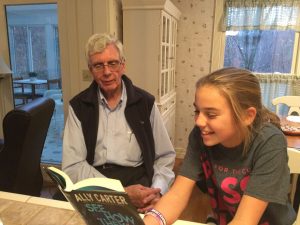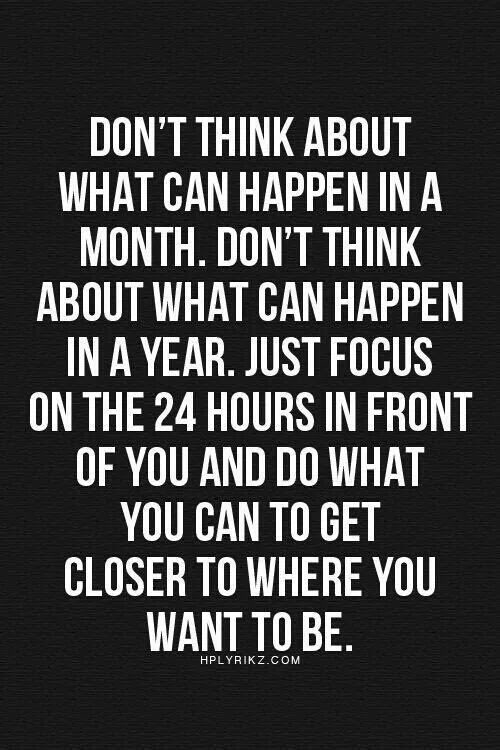The best way to write an organized essay that makes sense is to organize your writing before you start. Here is a handy tool to help with that. The Outliner of Giants Online Outliner
Thursday, January 4, 2018
Wednesday, January 3, 2018
Writing an Argumentative Essay
An Argumentative Essay:
I. Introduction
1. Introduce the topic by giving background information that briefly explains the topic so that the reader will understand the topic to be argued. (3-4 sentences)
- Has a clear introduction
- States a focus/position statement clearly, precisely, and thoughtfully
- Uses specific evidence from the text(s) to support and develop the position, and explains that evidence logically
- Takes into account what people who disagree with you might think and tries to respond to that
- Concludes effectively
Keep in mind that an argumentative essay is based more on facts as opposed to emotion. When picking a topic you’re interested in, be sure to pick one that you can support with evidence and reasoning. You will need facts, statistics, and reports from sources you and your audience can trust.
I. Introduction
1. Introduce the topic by giving background information that briefly explains the topic so that the reader will understand the topic to be argued. (3-4 sentences)
2. Add the thesis statement that clearly and strongly states your opinion concerning the
topic. Writing a direct thesis by including the reasons in your thesis is optional.
II. Body Paragraphs
1. The first two (or more) body paragraph gives a reason that supports the opinion stated in the thesis. This reason is supported with facts, data, or information.
2. One paragraph discusses the opposite viewpoint. After you pose the counter argument, contest it. Say why the counter argument is faulty and why your argument is stronger.
III. Conclusion
1. Use a transition signal for the conclusion such as: in conclusion, to conclude, etc.
2. Restate the thesis in different words than you used in your introduction.
3. Summarize your main points.
4. End with a final comment on the topic.
topic. Writing a direct thesis by including the reasons in your thesis is optional.
II. Body Paragraphs
1. The first two (or more) body paragraph gives a reason that supports the opinion stated in the thesis. This reason is supported with facts, data, or information.
2. One paragraph discusses the opposite viewpoint. After you pose the counter argument, contest it. Say why the counter argument is faulty and why your argument is stronger.
III. Conclusion
1. Use a transition signal for the conclusion such as: in conclusion, to conclude, etc.
2. Restate the thesis in different words than you used in your introduction.
3. Summarize your main points.
4. End with a final comment on the topic.
Perhaps the biggest mistake people make in writing an argumentative essay is to state their opinions instead of facts. Remember that each claim you make must be supported by solid evidence if your argument is to hold up to the opposing views.
Here are some sample topics. To find the entire list, go to the RW Wiki Argumentative Topic List.
School and Kids
Is child behavior better or worse than it was years ago?
Is homework harmful or helpful?
Is Cheating Getting Worse?
Should Students Be Able to Grade Their Teachers?
Does Your School Hand Out Too Many A’s?
Technology
Are we too dependent on computers?
Are cell phones dangerous?
Do violent video games cause behavior problems?
Have people have become overly dependent on technology?
Does Technology Make Us More Alone?
Social Issues
Are Adults Hurting Young Children by Pushing Them to Achieve?
Should the Government Limit the Size of Sugary Drinks?
Which Is More Important: Talent or Hard Work?
Is Your Generation More Self-Centered Than Earlier Generations?
Sports
Does participation in sports keep teens out of trouble?
Is competition good?
Should Home-Schoolers Be Allowed to Play Public School Sports?
Does participating in team sports helps to develop good character?
If Football Is So Dangerous to Players, Should We Be Watching It?
Labels:
Argumentative Essay,
Reading Workshop,
Writing
The Way to Start the Year Right

Image from #teachergoals
Labels:
Hard Work,
Kindness,
Reading Workshop,
success
Tuesday, December 19, 2017
Monday, December 18, 2017
Tuesday, December 12, 2017
Sometimes You Just Need to Rhyme
So what do you do when you need to rhyme? How about going to Rhymezone? When you are writing a poem and you need a word bank to help you, Rhymezone is a great resource. All you do is type in the word and it gives you a bunch of choices. Don't forget though, a poem still has to make sense and be meaningful.
Labels:
Poetry,
Reading Workshop,
Rhyme
Monday, December 11, 2017
Friday, December 8, 2017
Thursday, December 7, 2017
Revising Poetry
So you get a first draft of a poem and it seems pretty good. Now what? Is it ready to publish? Everything is spelled right. It makes sense. So how do you revise? How do you make it better? What can you do with a basic poem like this, that has a good topic choice with a nice twist at the end and make it into an A+ poem that grabs the reader?
That one kid makes me sad,
That one kid makes me mad.
When I see him I just go Eww!!!!
I don’t like him,
He doesn’t like me.
We fight all the time.
She started it!
No he started it!!
He makes me go crazy,
I make him flip out.
But the truth is………
He’s my brother.
One area that could be improved is word choice. The Reading Workshop Poetry Rubric says, Word choice is exact, colorful, and interesting. What words could be changed to improve this poem? Is there a synonym for sad that would be more interesting? Or mad? Or doesn't like?
We could also look at improving and adding sensory details like the rubric describes as, Uses sensory details to help the reader see, hear, feel, and/or think. What could be changed to help what the reader visualizes? Could the "one kid" be described in some way? What changes would help the reader see the fight?
When you have completed your revised version, paste it into the form below.
You can see revisions HERE.
You can see revisions HERE.
Labels:
Free Verse Poems,
Poetry,
Reading Workshop,
Revision
Tuesday, December 5, 2017
Monday, December 4, 2017
Generate Some Words
 If you want to write poetry but need a little help getting started, use the online site at Word Clouds. Just go to the wizard and put in words. When you are finished you can share this on your blog.
If you want to write poetry but need a little help getting started, use the online site at Word Clouds. Just go to the wizard and put in words. When you are finished you can share this on your blog.
Just go to the toolbar to File-->Save as PNG-->Open in Image Viewer -->Copy -->Paste into your blog.
You can also File-->Save-->Open New Post in Edublogs-->Add Media-->Uploade Files
Image from dominicavibes.dm
Labels:
Poetry,
Reading Workshop,
Word Cloud,
Wordclouds.com
Less Words for More Meaning
Cut
out all those words. This is poetry so you don't need them. In fact,
if the word doesn't do something to clarify meaning, or help make your
point, just delete it.
Get
rid of all those annoying little words and leave only the ones that
matter. You really don't need all those it's and is's. Nor do you
need those are's and were's. Trim the fat and excess words. Make your
poem meaningful and exciting.
The
best thing about poetry is that the author makes the rules. You can
choose whether or not to use capital letters, sentences, and
punctuation. The only rule is write in the best way to make your poem
meaningful and understandable. Just write so your reader relates to
your message.
Author's
note: There are divided thoughts about using apostrophes in certain
circumstances to show plural. The general thinking is that it is
allowable in a few instances if it helps considerably with making text more easily understood and more readable.
Image from kerileebeasley.com
Labels:
Free Verse Poems,
Poetry,
Reading Workshop,
revising,
Writing
Wednesday, November 29, 2017
Monday, November 27, 2017
Monday, November 20, 2017
You Aren't Going to Collage
Reading Workshop students, I hope you have the opportunity to go to college. If you want an education, it won't happen in a collage.

Labels:
editing,
Reading Workshop,
Spelling
Friday, November 17, 2017
RAWYC
Students are jumping on to the RAWYC project. They are sharing all types of reading.
 |
| Kyle Reads While Eating |
 |
| Kinsie Reading in the Bathtub |
 | |
| Addison Reading a Chapter Book |
 |
| Brody Reading a Picture Book |
 |
| Quincy Reading to Her Mom |
 |
| Alden Reading to His Cat |
 |
| Colton Reading to His Dog |
 |
| Lynsay Reading to Her Grandfather |
 |
| Kyle Reading in the Dark with a Flashlight |
 |
| Alex Reading Her Book |
 |
| Lily Reading a Chapter Book |
 |
| Cameron Reading to His Pets |
 |
| Brody Reading to His Mom |
 |
| Hayleigh Reading her Book |
 |
| Brooklyn Reading to Her Dog |
 |
| Abby Reading to Her Lap Dog |
 |
| Aubrey Reads to Bob |
| Sammi Rereading a Favorite Book |
Labels:
Fiction,
RAWYC,
Reading,
Reading Workshop
Thursday, November 16, 2017
Subscribe to:
Posts (Atom)
















